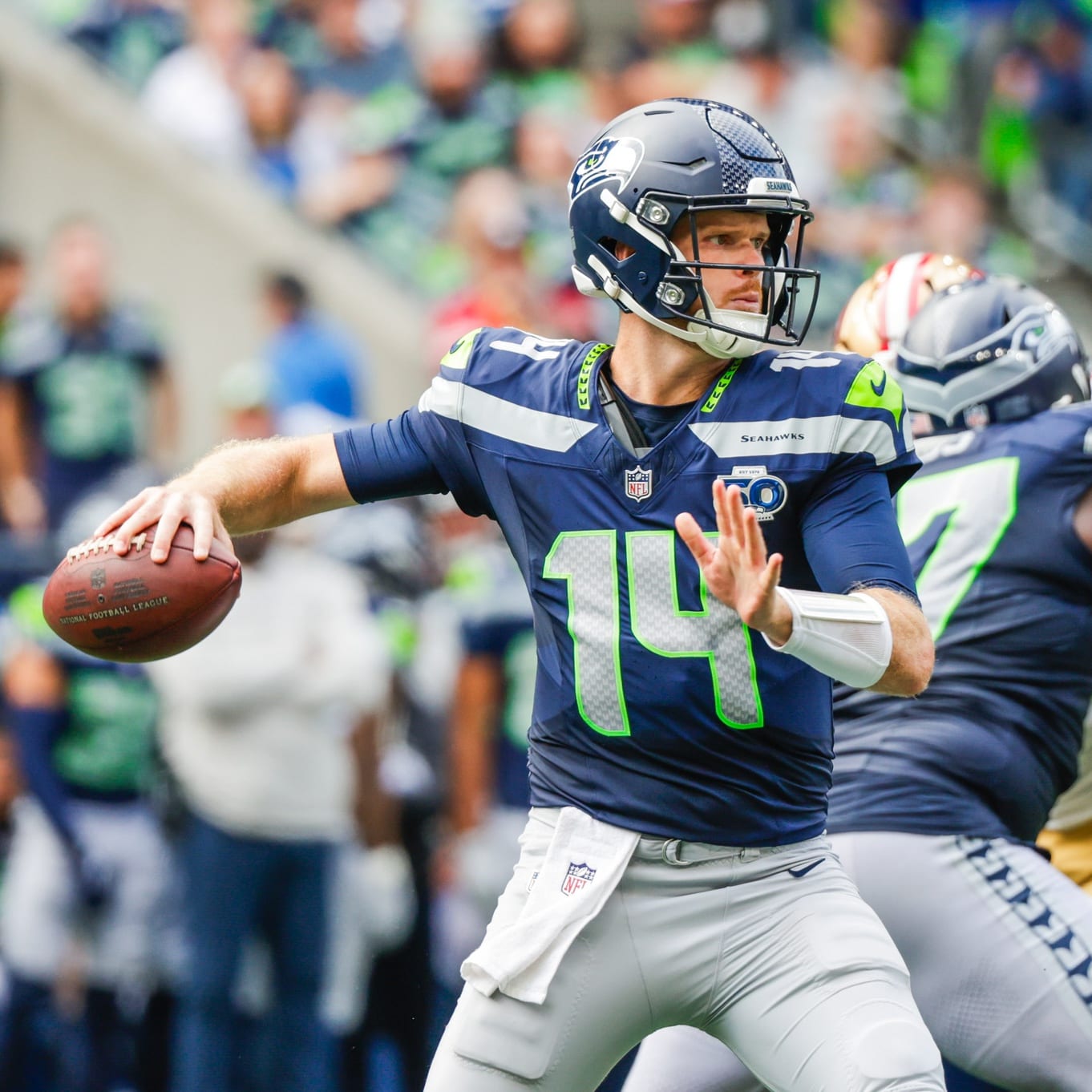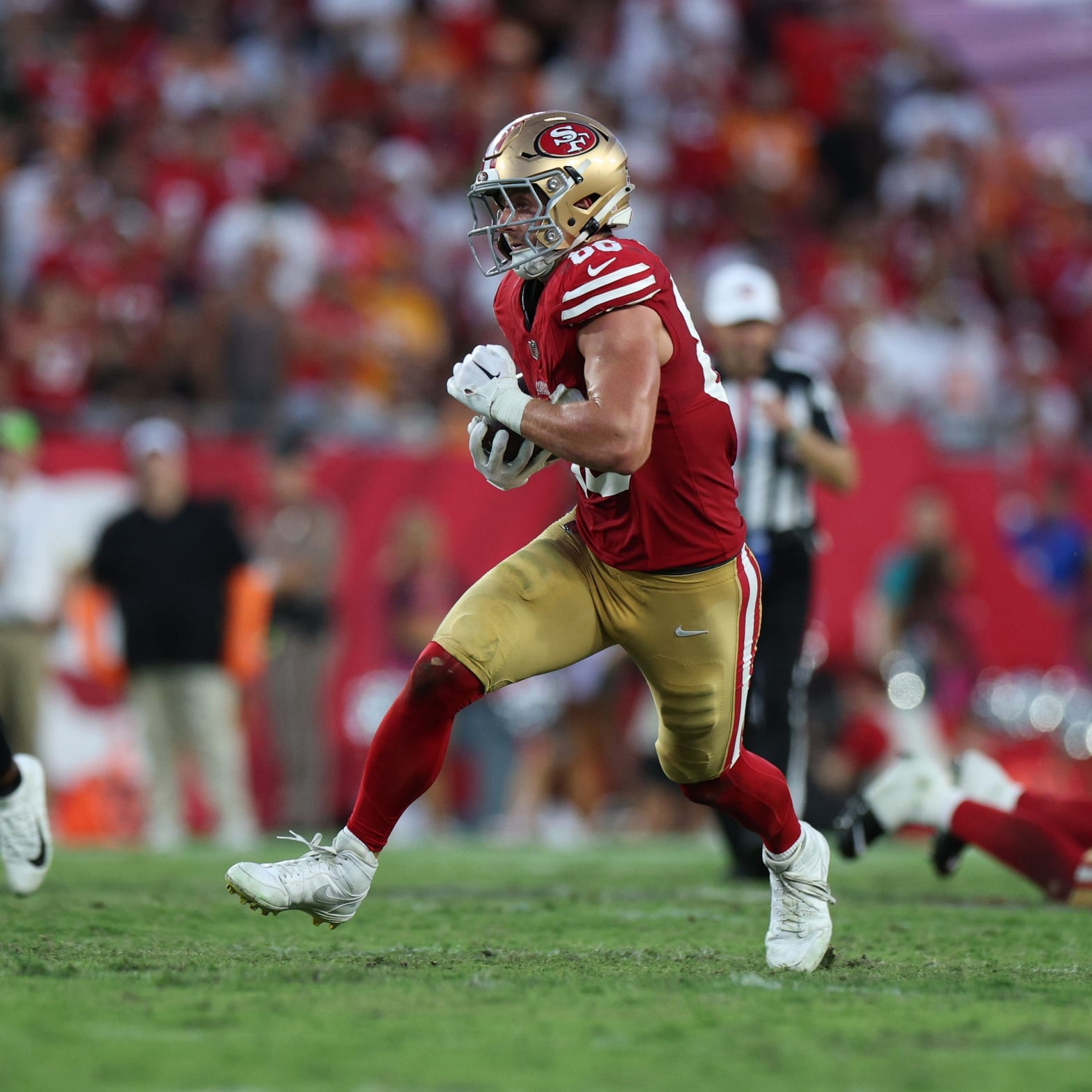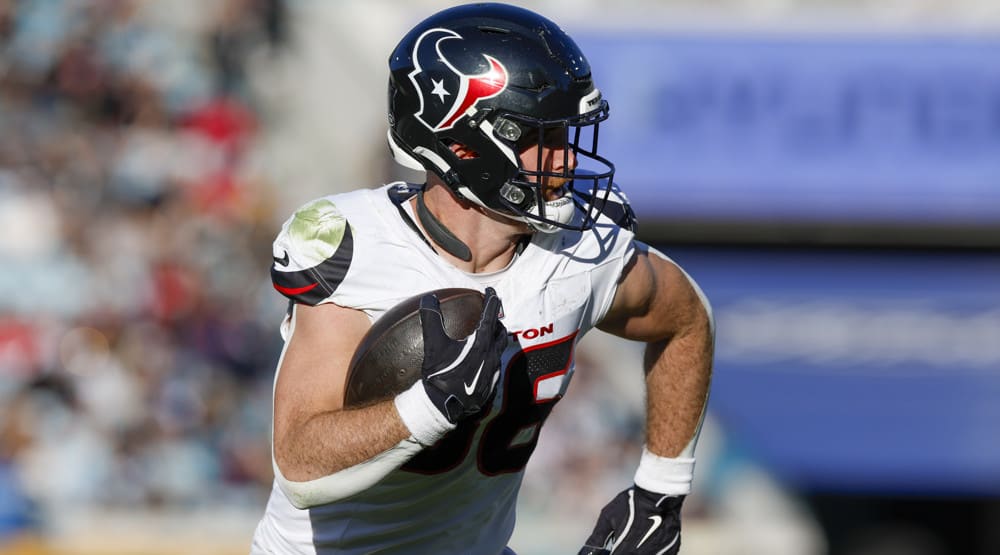RotoWire readers, we hope that you and the folks you care about are doing as well as possible during this unprecedented time. As the days and weeks roll on minus the sports we normally cover, we thought it might be interesting to ask members of our NFL coverage crew to offer up a few of their ideas regarding how they'd improve the league if put in charge of it.
Not surprisingly, the group came up with some pretty cool suggestions, which are posted below. Who knows? Perhaps we'll see some of them implemented down the road, especially if RotoWire has any subscribers out there with the pull to pitch them to those who actually do run the league!
In the meantime, take care one and all...
Today's question: So, you've been made Commissioner of the NFL. What's on your agenda?
Tim Schuler - Chief Operating Officer
- Scale back instant replay. It's gumming up the game.
- From my good friend and RotoWire subscriber Jack Stoklosa, "Scale back the flags. There doesn't have to be one every play."
- From my good friend and occasional RotoWire contributor Michael Holohan, "Teams need to stop babying everyone, which means the first few weeks of a team's season look like continued preseason prep."
- Stop trying to put more teams in the playoffs just to make more money. There's a reason these guys go to war for 16, er 17, regular-season games. (Editor's note: this suggestion was submitted prior to Tuesday's announcement of an expanded postseason)
- Wild-card
RotoWire readers, we hope that you and the folks you care about are doing as well as possible during this unprecedented time. As the days and weeks roll on minus the sports we normally cover, we thought it might be interesting to ask members of our NFL coverage crew to offer up a few of their ideas regarding how they'd improve the league if put in charge of it.
Not surprisingly, the group came up with some pretty cool suggestions, which are posted below. Who knows? Perhaps we'll see some of them implemented down the road, especially if RotoWire has any subscribers out there with the pull to pitch them to those who actually do run the league!
In the meantime, take care one and all...
Today's question: So, you've been made Commissioner of the NFL. What's on your agenda?
Tim Schuler - Chief Operating Officer
- Scale back instant replay. It's gumming up the game.
- From my good friend and RotoWire subscriber Jack Stoklosa, "Scale back the flags. There doesn't have to be one every play."
- From my good friend and occasional RotoWire contributor Michael Holohan, "Teams need to stop babying everyone, which means the first few weeks of a team's season look like continued preseason prep."
- Stop trying to put more teams in the playoffs just to make more money. There's a reason these guys go to war for 16, er 17, regular-season games. (Editor's note: this suggestion was submitted prior to Tuesday's announcement of an expanded postseason)
- Wild-card teams should get home playoff games if they have a better record than the division winner. There's no reason a 9-7 — or now a 9-8 team — in a poopy division should get a playoff game.
- The long-term survival of football depends on the safety of the players. The league should be spending hundreds of millions and finding top scientists to work on the equipment, namely the helmet. Developing a helmet that reduces concussions and head issues seems pertinent to the league's sustainability. Scientists have made suits where a grizzly bear can attack a person wearing one and they'd walk away completely unscathed. Or helmets used by the army that can sustain a bullet. Time to start applying some of this to football.
Jerry Donabedian - NFL Assistant Editor
- Cancel the 17-game season in favor of a 16-game slate played out over 18 weeks. This would allow the league and players to get a bit more TV revenue without playing more games, and the addition of a second bye week for each team would make bench depth more important in fantasy leagues.
- Pick one game per week to start at 12 ET on Sunday, and one other that doesn't start until 5 ET (but inactives still need to be reported by 3 pm, for fantasy purposes). This is the same general idea as my first suggestion; allowing fans to watch more football on TV without actually increasing the number of games played. Plus, I loved the early start times for college football when I was a student at UW-Madison.
- Decrease the play clock from 40 seconds to 35 seconds, except for plays that result in a first down (this ensures teams will have the extra five seconds after a long gain that doesn't result in a TD).
- Eliminate kickoffs, because they've already been ruined (which is fine, given the increased incidence of concussions on those plays). Instead of an onside kick, teams that want to keep the ball after a score can attempt a "4th-and-10" from their own 25-yard line. The 10-yard attempt should have a success rate around 25-35% — which is much higher than an onside kick — but it takes place deep enough in the offense's territory to discourage this tactic in anything other than a desperation situation.
- If a team is winning and has possession of the ball inside of the two-minute warning in the fourth quarter, it needs to gain a full yard or else the clock stops. R.I.P. boring kneel-downs.
Mike Doria - NFL Editor
- Create a developmental league where young players under contract can gain playing experience, and roster-bubble players can earn a living while auditioning for NFL jobs. Each franchise would field a full roster and the league's games would be played/broadcast on Tuesday nights. A TV contract would help cover player salaries. Each team would be permitted to protect five players (on NFL deals), including one QB. All other players would be allowed to sign with other teams, as is the case with current practice squads.
- Eliminate the extra point. While it's now less automatic than it used to be, it's repetitive and anti-climatic. Easy Option 1: go with a two-point conversion. Option 2: a TD is seven points and with the time saved by not lining up for extra points, make the last two minutes of each half "stop-time," thus saying bye-bye to tedious end-of half/game clock-management nonsense.
- Extensively revamp contract rules, beginning with a shift toward fully guaranteed contracts. Teams/owners are rich, so they can figure this one out. Even if it means that some of the free agent signing-day numbers aren't as eye-popping as they are now, how many players have we seen cut after playing just a year or two into their mega-deals? Tons.
- Lose the restrictive IR rules and allow teams more flexible designations on that front. IR will revert to what it was previously, that is, the player is out for the remainder of the season. However, if the player's injury isn't as serious, several other options will be available, whether measured in days (for example, a "30-Day DL") or contests ("Four-Game DL"). Two weeks, three weeks, four weeks, six weeks, eight weeks, ten weeks, 12 weeks... just pick a few of those timeframes that make the most sense and go from there.
- Drastically reduce the salary of the NFL Commissioner, which is currently in the $40 million per year range. Then apply the savings to the NFL's Player Pension Fund.
Peter Schoenke - President/Co-Founder of RotoWire
- XFL rules for kickoffs. Increased action, fewer full-speed hits.
- Injured reserve/IL slots. Just copy the CFL. One-game, six-game and rest-of-season injured lists. No inactives on game days. I think the NFL doesn't have short-term injured reserve spots because it saves them some money by not having more full-time players. But it's peanuts in the grand scheme. Players are going to be healthier if they can go on a short-term reserve list vs. gutting it out with an injury
- Replay should have the guidelines changed to just if it's clearly obvious. If it's not overwhelming, let the call stand. No more 51%-49% decisions. Also, do it with someone in the stands who makes all calls (like the XFL) and does it quick, and only to overturn no-brainer calls. Anything close, let the decision stand and move on.
- If you are going to have 17 games, then have two bye weeks. More weeks for TV viewing and players stay in better health.
- Make sure the schedule gives any team playing on Thursday a bye the week before. Week 1: First game is Wednesday. Have another game Thursday. Week 2: one of the Wed. teams plays the Thurs. teams on Thursday. Week 3: Maybe no Thursday game if we don't want a Week 2 bye (though with two bye weeks this becomes easier).
Eric Caturia - Assistant NFL Editor
- Standardize replay reviews. First and foremost, place a time limit of 90 seconds, or two minutes max, on reviews. The NFL has focused more and more on game flow in the last two decades, but reviews continue to bog it down. To help the cause, all reviews will be decided at league headquarters, taking it out of the hands of the referee. With all the technology on hand, there's no reason those under Al Riveron (head of officiating) can't role play — for lack of a better term — all possible scenarios and be ready once the games matter. Finally, for the sake of transparency, the NFL will release concise videos the morning after a game describing the decision-making process for each review.
- Introduce targeting — In college football, targeting is defined as a player taking aim at an opponent "for purposes of attacking with forcible contact that goes beyond making a legal tackle or a legal block or playing the ball." You know, launching into an opponent, leading with the helmet, and other unnecessary contact. All targeting calls are reviewable, and once a decision is handed down, the player in question is ejected, his team incurs a 15-yard penalty, and — in the Big Ten's case — that player must miss the first half of the next game. The NFL competition committee should take up the cause and put pen to paper on its version of the rule with the goal to make the pro game safer.
- Jersey ad patches — "Respecting The Shield" is hailed by the commissioner, owners and even the media, but in the end $$$ rules in the NFL. It boggles the mind that the league hasn't explored one of the uncharted territories of advertising, if in fact this latter point stands. Just look at the NBA, which introduced jersey patches for the 2017-18 season and raked in more than $150 million combined between the 30 teams in the second year of the program, according to Sports Business Journal. Because NFL profits dwarf the world's premier basketball league, the sky seemingly is the limit for the Jerry Joneses of the world to open the bidding and line their (and the players') pockets even more.
Ilango Villoth - NFL Writer
- Change defensive holding to be something less than an automatic first down, but keep it a static penalty. Make it a repeat of down or five-yard penalty; anything that doesn't kill the momentum of the game.
- Restart the full-time officiating program. The No. 1 thing the NFL can do to improve the game for viewers, bettors and fantasy enthusiasts alike is to get calls right routinely.
- Allow teams an outlet to change uniforms without always having to stick it out for a full five years first. Quick turnover rates wouldn't be ideal, but anything to avoid fans having to put up with design nightmares for half a decade before getting something less offensive to the eyes.
John McKechnie - College Football Editor
Change the rookie wage scale for running backs. For better or for worse, they're being devalued both on the field and on the market. If you're being objective about it, it makes sense. It's a position that's unbelievably taxing on the body, and those that play it are essentially signing up for a short shelf life on the field. And teams are getting wiser and wiser to that fact.
Imagine how the rest of the league is looking at the clubs that took the plunge on big paydays for running backs. Almost every single one of those teams has buyer's remorse. Be it the Rams with Todd Gurley or the Jets backing up the Brinks Truck for Le'Veon Bell in free agency, the big second contract for a running back is going to be a thing of the past sooner than later.
The whole second contract problem gets compounded by the fact that fewer running backs are being taken in the first round and thus playing on less lucrative deals in their peak years. Unless you're really one piece away like the Cowboys were with Ezekiel Elliott in 2016, it's hard to justify spending a first-round pick on a running back, especially in the top 10. So right off the bat, even the best backfield prospects in any given class are making second-round money at best more often than not.
Additionally, the position inherently lends itself to having a peak while the players are still on their rookie deals. There's no such thing as a running back sitting behind a vet for a couple of years to develop. It's go time from the second they report for rookie minicamp.
So how do we solve this? The objective would be to reward running backs for their peak seasons and pay them during that time. Would that entail performance or incentive- based pay for running backs during the first four years of their careers? Making rookie running back deals fully guaranteed? Allowing them to make franchise tag-level money after their first season? I'm not going to pretend to have all the answers here. I'm not a business guy, I'm an ideas guy. And if I were the commish, I'd get a braintrust together to figure out the logistics because having the chips stacked so heavily against running backs just doesn't sit right with me.
Also, I'd adopt the college rules for pass interference. The idea that you can chuck it downfield for the express purpose of picking up 40 yards through defensive pass interference is just ridiculous. I'm a Ravens fan, which means I'm a Joe Flacco fan, and even I can admit this.
What qualifies for pass interference in college is essentially the same as what qualifies for it in the NFL. The difference is how harsh the penalty is. In college it's a spot foul up to 15 yards and then a 15-yard penalty for anything beyond that. So it still stings the defense by being assessed the same yardage as a pass interference, but it's not an outsized penalty that can drastically shift a drive, let alone a game.
Finally, since the NFL still employs the extra point, let's close with one here...
Chris Liss - Managing Editor
- Wild card playoff admission by point differential, not record. Every game and every quarter matter. Only division winners are decided by wins and losses. Other spots are pure point differential.
Any other good ideas out there?




































